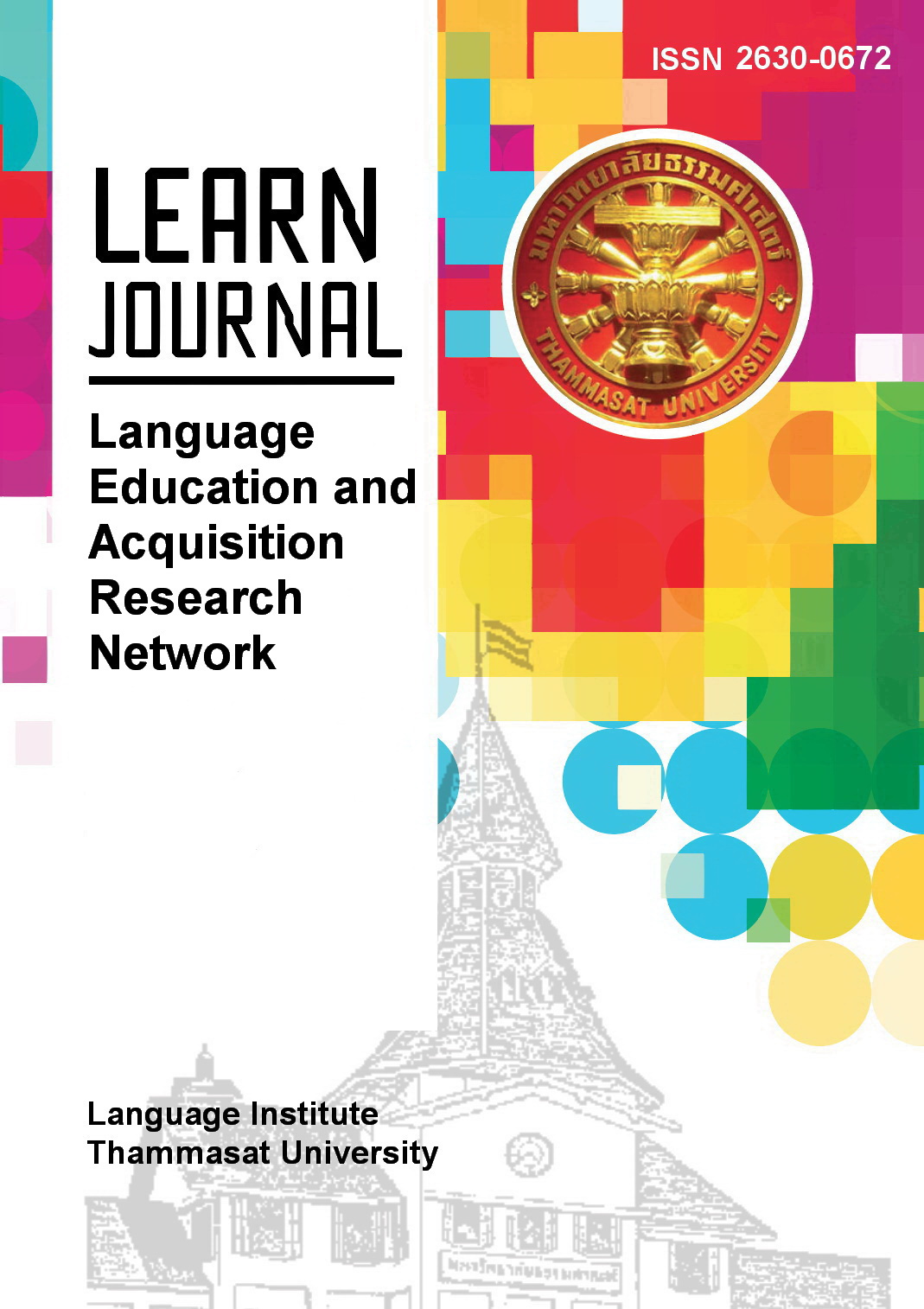Effects of Reading Instruction Using Backward Design Framework and Citizenship Theme to Enhance English Reading Comprehension and Social Responsibility of Tenth-Grade Thai EFL Students
Main Article Content
Abstract
Potentially, the use of themes or other subject materials could affect how successfully EFL students enhance their reading comprehension. By not only focusing on language skills, reading instruction could also entail other domains of outcomes including social responsibility. A solid path to achieving multiple desired results is worth studying. This present study investigated the effects of reading instruction using Backward Design Framework with a citizenship theme (BD&CT) on the English reading comprehension and social responsibility (SR) enhancement of tenth grade Thai EFL students. The participants were 36 tenth grade EFL students at a public school in Thailand. One group pretest - posttest design was employed for quantitative data collection from the English reading comprehension test and SR self-report questionnaire. Students’ opinions in quantitative and qualitative data were also taken into account. The findings revealed that reading instruction using BD&CT enhanced reading comprehension and social responsibility of the students at a statistically significant level. Analysis of students’ opinions suggested they had a high engagement in reading comprehension lessons and learning experiences stimulating senses of responsibility for their society, resulting from the instructional plans using BD as well as citizenship theme considered meaningful to real life.


